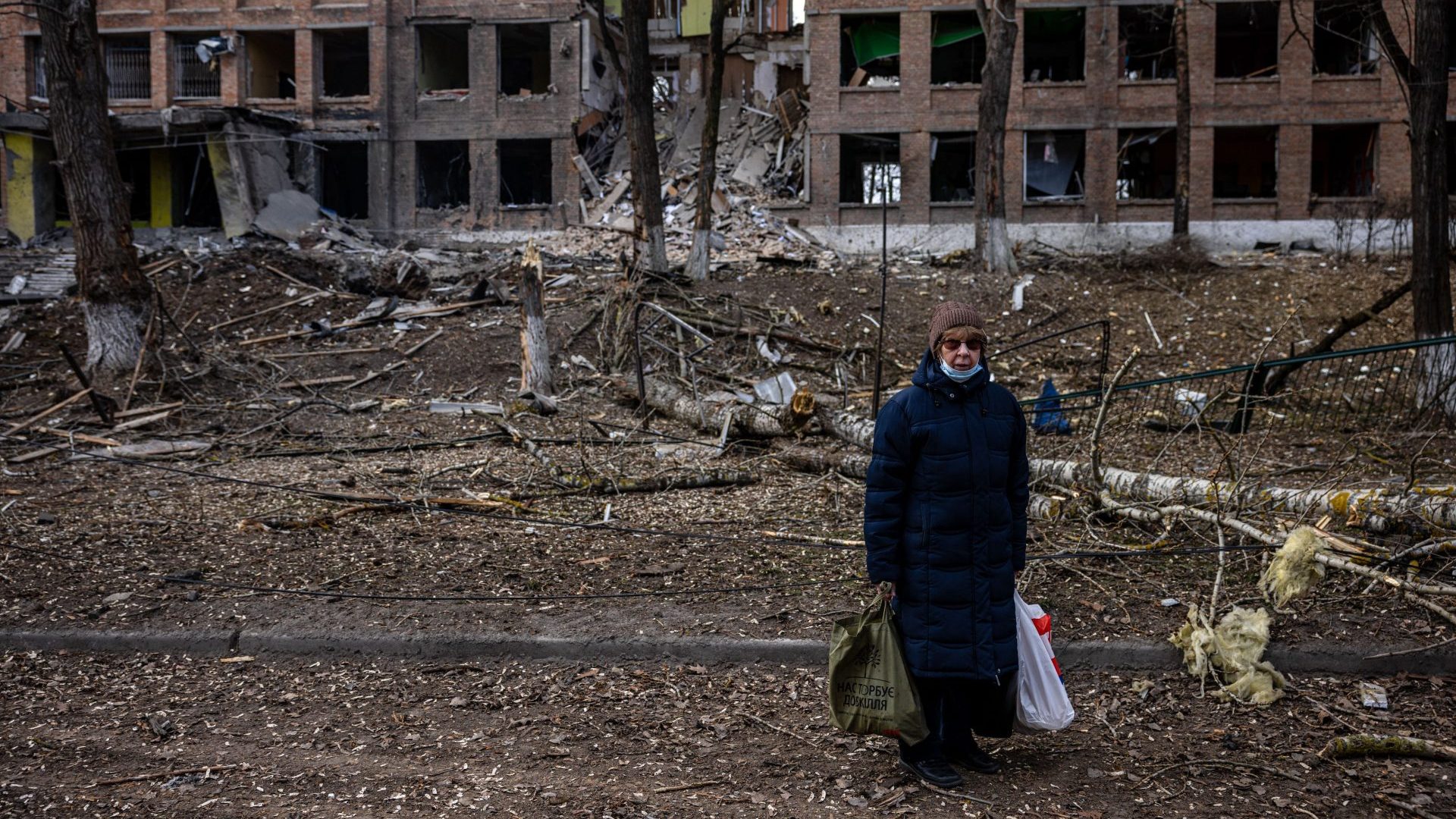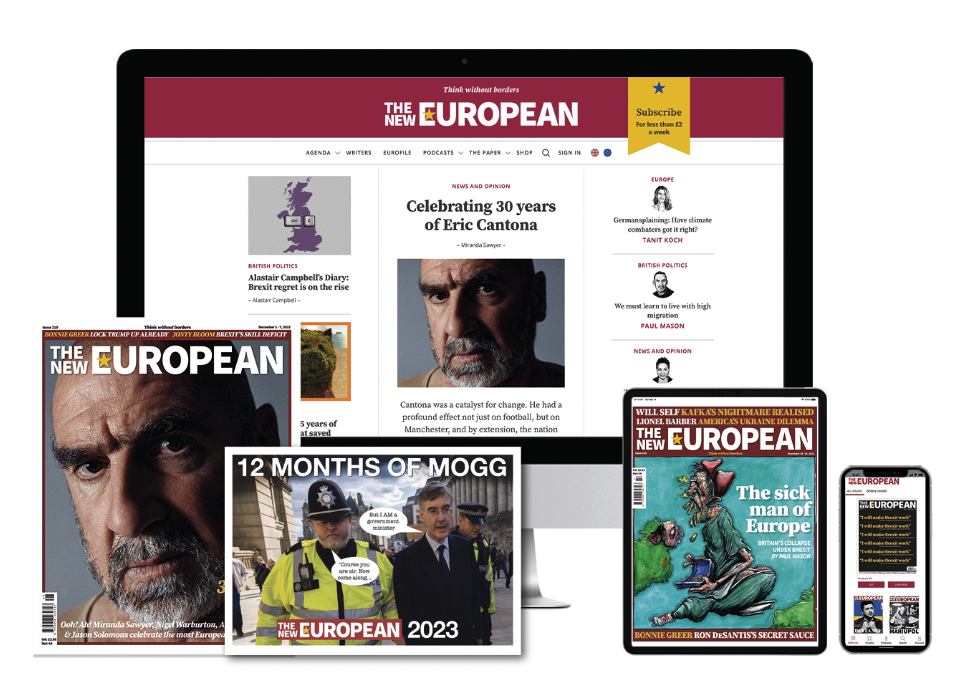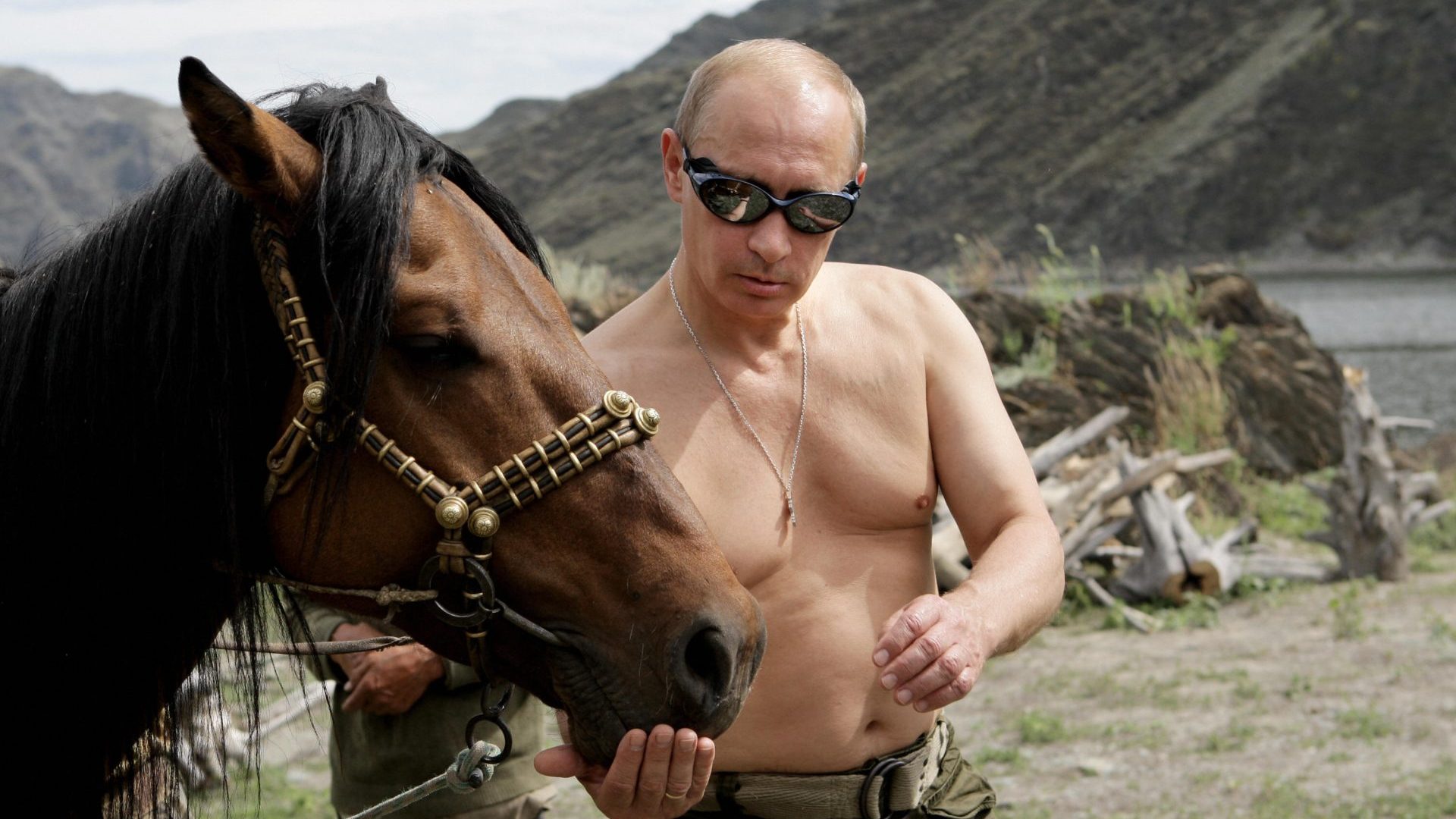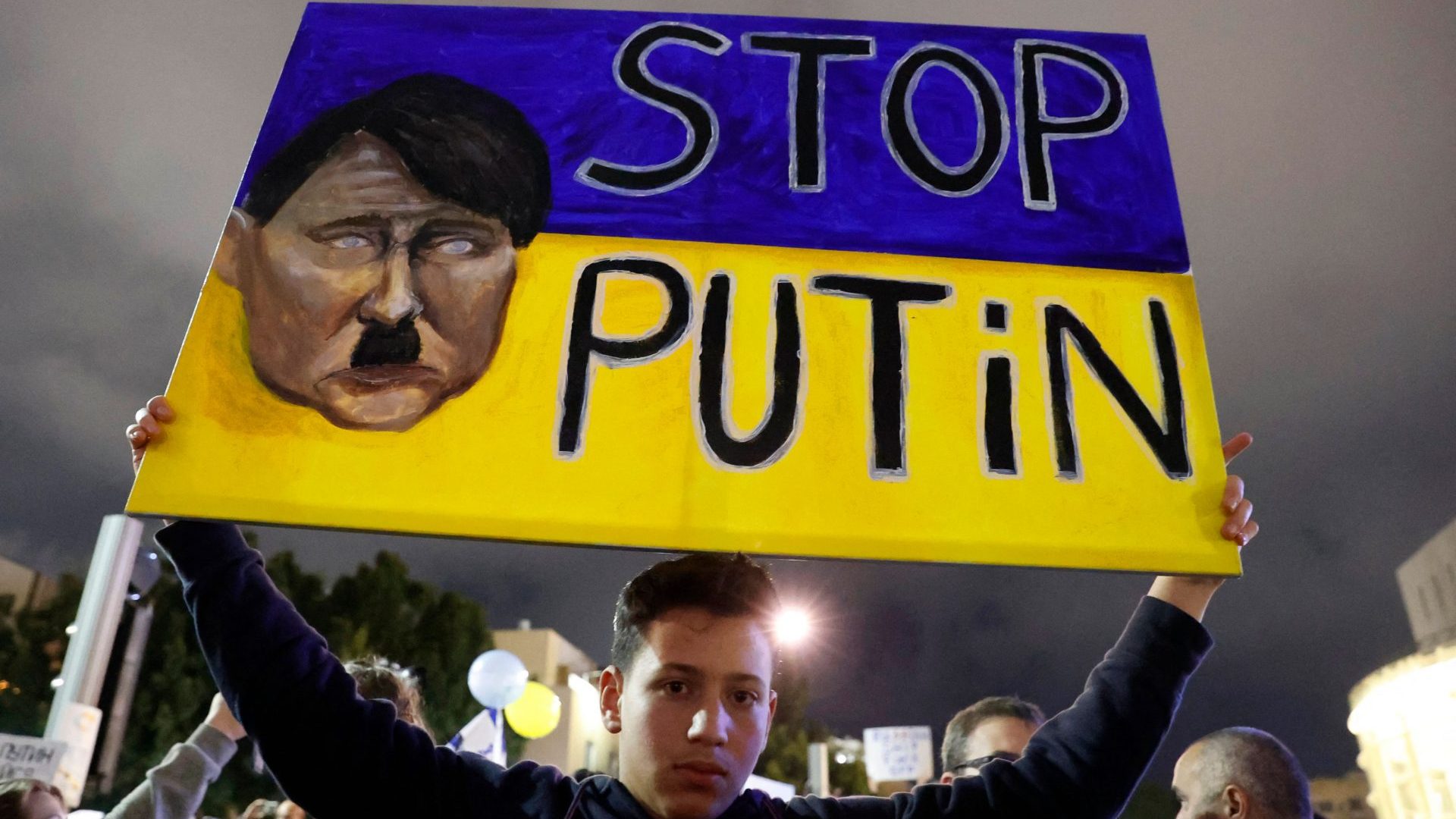Vladimir Putin’s decision to invade Ukraine is by far his biggest gamble in power, more serious than his intervention in Syria, his seizure of Crimea, and his meddling in the 2016 US presidential election. It is a brazen attempt to redraw the frontiers of Europe, subjugating the independent state of Ukraine in the name of restoring Russian “greatness”.
The consequences for world order are profoundly destabilising. Putin’s unprovoked aggression could embolden others nursing territorial claims or historic grievances. China, with its ambitions to reunify Taiwan with the mainland, is an obvious candidate. The Balkans, still smouldering after the mid-1990s conflict, is a tinderbox waiting to explode. Energy-rich Kazakhstan, a country the size of western Europe sandwiched between Russia and China, looks vulnerable.
The war in Ukraine is therefore a watershed moment. February 22, 2022 will be a day that will live in infamy along with the Nazi invasion of Czechoslovakia in 1938; the Japanese assault on Pearl Harbour in 1941; and Soviet tanks crushing the anti-communist uprising in Hungary in 1956.
As Valdis Dombrovskis, the Lithuanian vice-president of the European Commission, said: “We are facing an ultimate test: staying in a world which respects the rule of law. Or moving to a world where ‘might is right’.”
After initial hesitation, the democratic West’s response has been encouragingly robust. The US, EU and UK appear to be in lockstep, announcing a barrage of economic sanctions which include targeting Russia’s central bank and removing several important banks and enterprises from the SWIFT global payments system – the financial equivalent of a tactical nuclear weapon.
Equally significant is Germany’s shift to supporting the supply of defensive weapons such as anti-tank and surface-to-air missiles to the Ukraine armed forces – a step change from feeble offers of a few thousand helmets. Together these sanctions highlight how, in a matter of days, the centre of gravity inside the EU has moved decisively in favour of confronting bully boy Putin. A senior European official summed up the mood: “Of course there are risks. But we all realise that we had to do something. The alternatives were far worse.”
No one knows Putin’s state of mind, such is his reliance on an ever-narrowing circle of ultra-nationalist advisers and his near two-year isolation during the Covid pandemic. But the Russian president is unlikely to have anticipated this sudden display of western resolve nor the overnight transformation of Ukraine president Volodymyr Zelensky from TV comedian to global hero.
Putin likely reasoned that the EU had no stomach for a protracted stand-off. He withstood opprobrium after the annexation of Crimea. He built up six hundred billion dollars in foreign exchange reserves, thanks to a high oil price. And, in terms of grand strategy, he moved Russia closer to Xi’s China, figuring that the US will think twice about a confrontation on two fronts. The risks of an escalation of the Ukraine conflict are serious: economic warfare leading to a paralysed central bank and chaos in Russia’s financial markets; a retaliatory cut-off of Russian energy to Western Europe leading to higher prices and rationing; military conflict spilling over from Ukraine into neighbouring NATO countries like Poland and the Baltic states; and a humanitarian crisis caused by the exodus of hundreds of thousands of Ukrainian refugees.
In the background is the threat that dare not speak its name: the spectre of nuclear conflict. On the eve of ordering Russian forces into battle, Putin sent a chilling warning that any country tempted to intervene would face a response like the world has never seen. The West has called his bluff (assuming, as we must, that he would not dare press the nuclear button triggering mutually assured destruction). Absent a renewed diplomatic effort to halt the fighting, this is a bloody conflict that could last months with unknown repercussions for the international order and the future balance of power.
Many commentators have explained Putin’s aggression in terms of psychology. By this account, Russia’s new tsar – 22 years in power and counting – is determined to redress grievances going back to the collapse of the Soviet Union. These include the expansion of Nato eastwards to central Europe and the Baltic states; the US-led invasion of Iraq and the toppling of Col Gadaffi in Libya; and the prospect that neighbouring Georgia and Ukraine would join the NATO alliance.
In reality, Putin’s biggest fear is not so much further expansion of NATO eastwards – a far-fetched proposition at best – but democracy on his doorstep. He wishes to deny Ukraine the right to choose as a sovereign state. His goal looks like the installation of a puppet regime in Kiev and the renunciation of any ambitions to join the west via the EU or NATO alliance. Ukraine will be marched back into Russia’s sphere of influence: a Yalta II, this time achieved by force rather than Churchill’s and FDR’s acquiescence in 1945.
Putin remains paranoid about a “colour revolution” like Ukraine’s Maidan uprising in 2013 which drove the pro-Russian president Viktor Yanukovich from power. He was sufficiently unsettled by Alexei Navalny’s anti-corruption campaign that he tried to have his foremost political opponent assassinated, a botched exercise which nevertheless still led Navalny to be convicted in a kangaroo court and dispatched to a labour camp in Siberia. In this portrait of the brooding autocrat consumed by imperial nostalgia, two threads are missing: Putin’s belief in the narrative of western decline and his growing appetite for risk. As he told me in an interview in the Kremlin in 2019, citing an old Russian saying: “He who does not take the risk does not get to drink the champagne.”
Putin also declared that the “liberal idea” was a spent force. The purpose of government, he declared, was to create a “stable, normal, safe and predictable life” for ordinary people. Western elites had lost touch with their populations and had become preoccupied with gender fluidity and homosexuality. “So the liberal idea,” he concluded, “has become obsolete. It has come into conflict with the majority of the population.”
Putin’s belief in western decadence has grown as VIP visitors to the Kremlin have sought to appease or indulge him. Chancellor Angela Merkel spent dozens of hours seeking to persuade him that he was on the wrong course. Yet, she did nothing to reduce Germany’s dependence on Russian energy, refusing to cancel the Nord Stream II pipeline and compounding her mistake by scrapping the country’s nuclear energy plants.
Russian political interference in the Balkans, the infiltration of political parties in Austria, France and Italy, and the use of propaganda via broadcasting outlets such as RT also drew little more than a shrug of shoulders. It was just “Putin being Putin”, the bad boy at the back of the class in Barack Obama’s words.
Britain’s record has been dismal, too. Only after (another) botched assassination, this time former KGB double agent Sergei Skripal, was the British government minded to mobilise the machinery of government against Moscow. More damning was Boris Johnson’s failure to publish the parliamentary report exposing Russian influence in the UK and the Tory party’s financial ties to questionable individuals with links to Moscow. London, a world financial centre, remains central to the ecosystem which manages the affairs of the Russian elite.
Nowhere has the narrative of decline taken hold more seriously than in the US. President Trump’s attempt to overturn the legitimate result of the 2020 election – culminating in the insurrection at the Capitol a year ago – did terrible damage to America’s standing. The chaotic withdrawal from Afghanistan fuelled the notion of the world’s superpower in retreat.
In the run-up to the Russian invasion and its immediate aftermath, western democracies followed a familiar script of lame excuses for inaction. SWIFT financial sanctions would backfire, Germany and Italy warned. Europe’s dependence on Russian energy – taking in more than 20 per cent of its fuel imports on average – left the EU hostage.
The British government, led by tough-talking Boris Johnson and Liz Truss, have been quick to take the credit for the turnaround in opinion. True, British intelligence, co-ordinated with the CIA, has been important in exposing Putin’s lies and his military intentions. But other factors have come into play.
First, the leading role played by Poland and the Baltic states who represent the post Cold War democracies and NATO members on the frontline of the Ukraine conflict. Their plight is existential, and it left more cautious leaders like Emmanuel Macron of France, Mario Draghi of Italy and Olaf Scholz of Germany looking to their consciences and their own place in history.
Second, the new German coalition government led by chancellor Scholz is a very different colour from the Merkel years. The inclusion of the Greens, led by Annalena Baerbock and Robert Habeck, has added a moral dimension to the previous German policy of de facto accommodation with Putin’s Russia based on business interests and post-WW2 war guilt.
Third, the Biden administration, much criticised during the Afghan debacle, has played a shrewd diplomatic game. Instead of putting public pressure on the Europeans, it has nudged behind the scenes, waiting for Macron’s diplomatic gambit to peter out. “Europe is our trump card,” says a senior US official.
With America and Europe working in tandem, all eyes are on China. So far, Beijing has engaged in an uncomfortable straddle, criticising NATO expansion but calling for diplomatic talks and respect for territorial integrity. Last week, China notably abstained (rather than joining a Russian veto) from a UN resolution condemning Russia’s invitation of Ukraine. Its position is described quaintly as “pro-Russian neutrality.”
There is speculation, however, that President Xi was “played” by Putin at their last summit in Beijing ahead of the Winter Olympics. The two leaders issued a joint declaration that the Sino-Russia relationship knew “no bounds” but it seems doubtful that Xi – preoccupied by the need for stability ahead of the October Party Congress – would have signed up had he been informed of Russia’s pending war of choice against its neighbour.
Nevertheless, there is plenty of common ideological ground between Xi and Putin, who have met 38 times since assuming office. They share a disdain for a US-led liberal order. They fear the democracy virus, whether in Hong Kong or neighbouring Belarus and Ukraine. Each would prefer to be part of an economic system less vulnerable to western sanctions, particularly based around the US dollar.
The question is whether China will now feel obliged to come to the help of Putin, particularly in efforts to circumvent economic sanctions, perhaps through digital payments or cryptocurrency. Some Chinese entities will certainly be wary, lest they too become targets of dollar-based warfare. But if Xi does move further toward Moscow, fears of a new axis of autocracies will grow.
Some influential commentators like Robert Kagan, a foreign policy realist in the mould of Henry Kissinger, believe that Putin’s war in Ukraine signals a decisive shift in the balance of power and the end of the post Cold War liberal order. The implication is that the US will have to accept China’s parity in the Pacific and Russia’s own sphere of influence in its “near abroad”.
Others, like Robert Zoellick, the former president of the World Bank and deputy US Secretary of State, argue that this underestimates American influence and its scope for manoeuvre between Russia and China (who are by no means as close as the comradely rhetoric suggests).
By a twist of irony, last week’s invasion of Ukraine coincides with the 50th anniversary of the Shanghai communique, the successful Nixon-Kissinger effort to drive a wedge between Mao’s China and Brezhnev’s Soviet Union. The problem is that US-China relations have been in the deep freeze since 2017, and there is no trusted diplomatic channel between Beijing and Washington.
In the space of a week, the West has moved from diplomacy to economic warfare. Taking their lead from president Volodymyr Zelensky, the US and Europe have resolved to confront Putin who must now decide whether to double down or go back to the negotiating table, perhaps pursuing the idea of a partition of Ukraine linking the eastern territories of Donbas and Luhansk to Crimea, or a formal declaration of Ukraine neutrality along the lines of Finland.
The latter idea is reported to have been explored in Paris and Berlin, though it met with fierce resistance from the Americans and Poles, among others. Most likely the moment has passed, blown away by the Russian onslaught in Ukraine but also Putin’s threats against Finland and Sweden for raising NATO membership and Zelensky’s own remarkable courage, caught daily on his own iPhone camera and broadcast to the rest of the world.
These images, and the pictures of ordinary citizens in Kiev, Kharkiv, Lviv and Odessa speaking in fluent English and Russian against war and in favour of a nation’s sovereign right to choose its own destiny testify to a broader truth absorbed by Europe’s leaders: we are all Ukrainians now.
Lionel Barber was editor of The Financial Times (2005-20). He is the author of The Powerful and The Damned, Private Diaries In Turbulent Times (WH Allen)





